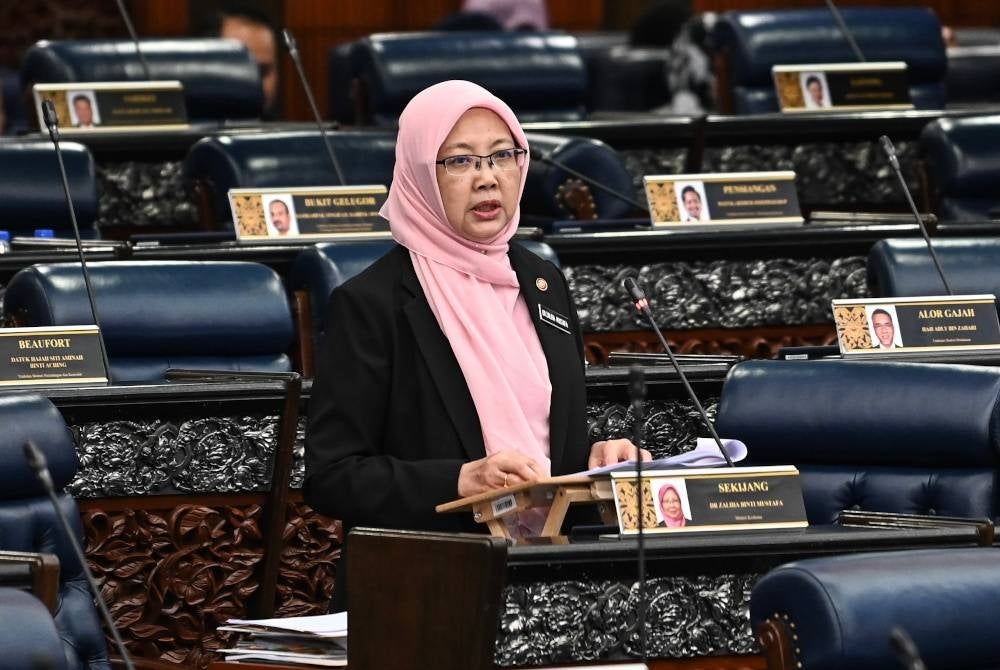Healthcare services fee changes will not be simply done - Dr Zaliha

KUALA LUMPUR - Any changes to the public healthcare services fee structure will not be simply done or carried out in a rush.
Health Minister Dr Zaliha Mustafa said the structure will be looked at carefully and transparently with necessary analysis and taking into consideration the views of all stakeholders collected through engagement sessions.
She said what was important to the government currently was to ensure that Malaysians, especially those in need and the poor, would not be affected and could enjoy continued access to healthcare services.
"At this time, the rate charged in the public sector is very minimum as we know because the government subsidises a lot and the fee charged is the same for all patients.
"In fact, the Health Ministry does not have a mechanism to collect surplus fees even if patients are willing to pay more as they appreciate the comprehensive treatment they received,” she said when winding up the debate on the Health White Paper at the Dewan Rakyat sitting today.
The Health White Paper was then passed by the Dewan Rakyat after being debated non-stop for three hours by 30 MPs from both the government and opposition blocs, during which they brought up reviewing the current fee structure, which some felt would affect Malaysians, especially those in need.
Tan Sri Muhyiddin Yassin (PN-Pagoh) asked that the suggestion to raise treatment fees be deferred and reviewed as it would burden the people who are already struggling with rising prices of daily necessities, inflation and the Overnight Policy Rate (OPR), while Hassan Abdul Karim (PH-Pasir Gudang) agreed, stating that the payment rates, which have never been raised, should be retained to help Malaysians.
Dr Zaliha also said that the government would pool various healthcare funding sources together to ensure that it was more efficient and effective, in line with the third pillar of the white paper - to ensure that healthcare costs were sustainable and fair.
When she tabled the paper, she said that it would outline the current status, differences and weaknesses faced by the national healthcare system and structural and systemic solutions, including reforming service delivery, financing and governance in phases for a period of 15 years.
The Health White Paper also detailed steps to reform the healthcare system, including in the shorterm phase from the first year beginning in 2024, the middle term from 2029 and in the long term, starting from 2034 to 2039. - Bernama










